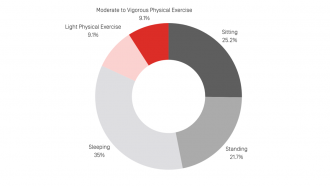-
Financial privilege may not protect you against lower back pain and arthritis
PLOS ONE
People living in wealthier neighbourhoods may be no less likely to develop lower back pain or arthritis, according to Australian and international researchers. The team looked at the prevalence of lower back pain and arthritis among identical twins Read more about Financial privilege may not protect you against lower back pain and arthritis
Australia; International; NSWThe University of Sydney -
The pressures of Covid science communication
ESCMID Global Congress
NZ microbiologist Siouxsie Wiles will talk at a global conference about her science communication during the Covid-19 pandemic, the subsequent harassment she faced, and what is now being done to help scientists subjected to threats for speaking Read more about The pressures of Covid science communication
New ZealandUniversity of Auckland -
Genetic hope in fight against devastating wheat disease
Cell Host & Microbe
Fungal disease Fusarium head blight (FHB) is on the rise due to increasingly humid conditions induced by climate change during the wheat growing season, but a fundamental discovery by University of Adelaide researchers could help reduce its economic Read more about Genetic hope in fight against devastating wheat disease
Australia; SA; WAThe University of Adelaide|Murdoch University -
EXPERT Q&A: Mass whale stranding near Dunsborough in WA
About 160 long-finned pilot whales became stranded at Geographe Bay near Dunsborough, WA on Thursday morning. Murdoch University marine biologist and Senior Research Associate Dr Joshua Smith said the stranding may have been due to the long, Read more about EXPERT Q&A: Mass whale stranding near Dunsborough in WA
Australia; WAMurdoch University -
How much time a day should we spend sitting, sleeping, standing and being active for optimal health
Diabetologia
An international team has analysed over 2,000 people’s behaviours within a 24-hour day to determine the amount of time we should spend sitting, sleeping, standing and being physically active within a 24-hour period for optimal health. According to Read more about How much time a day should we spend sitting, sleeping, standing and being active for optimal health
Australia; VIC; QLD; SASwinburne University of Technology|Baker Heart and Diabetes Institute... -
Climate change reveals intricate dynamics of reproductive barriers in marine species
Evolution
Monash University scientists have uncovered insights into how rising temperatures influence the reproductive interactions and species boundaries of marine organisms. Monash University scientists have uncovered insights into how rising temperatures Read more about Climate change reveals intricate dynamics of reproductive barriers in marine species
Australia; VICMonash University -
Gigantic Jurassic raptor footprints unearthed
iScience
Scientists have discovered the tracks of a five-metre-long raptor dinosaur, challenging what was previously known about the species’ size range. Scientists have discovered the tracks of a five-metre-long raptor dinosaur, challenging what was Read more about Gigantic Jurassic raptor footprints unearthed
Australia; QLDThe University of Queensland -
Bisexual and lesbian women died 26% earlier than straight peers in long-term study
JAMA
Data from more than 90,000 nurses studied over the course of 27 years found bisexual- and lesbian-identified nurses died earlier than their straight counterparts. Bisexual women in particular had the most pronounced disparities in all-cause mortality Read more about Bisexual and lesbian women died 26% earlier than straight peers in long-term study
InternationalHarvard University, USA; -
Have we cracked the link between depression and heart disease?
Frontiers in Psychiatry
International scientists believe that they have explained the puzzling link between depression and heart disease; it's down to our genes. The team say they found a 'gene module' which consists of 256 functionally related and co-expressed genes that Read more about Have we cracked the link between depression and heart disease?
InternationalTampere University, Tampere, Finland -
Short courses of low dose opioid painkillers during pregnancy not linked to psychiatric disorders in children
The BMJ
Taking low doses of prescription opioids for short periods after the first trimester of pregnancy is relatively safe in terms of neuropsychiatric disorders in children, but caution is needed for higher doses over longer periods, according to South Read more about Short courses of low dose opioid painkillers during pregnancy not linked to psychiatric disorders in children
InternationalKyung Hee University College of Medicine, South Korea, University of Rhode Island, USA










































